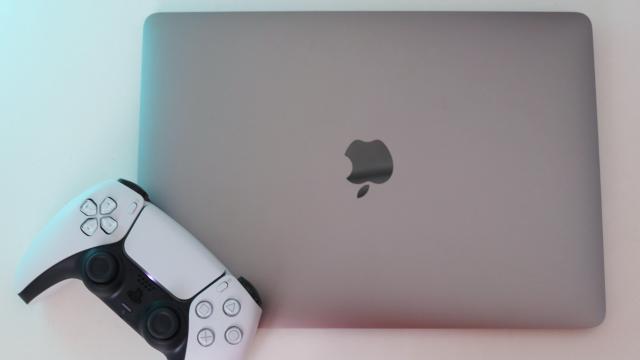Are Macs good gaming machines? Sorta. Macs, and MacBooks especially, aren’t optimised for gaming to say the least, and many games simply do not support macOS. That said, Mac gaming has come a long way in the past few years, and it’s easier than ever to find and play games on an Apple computers (you know, relatively).
Yes, Windows desktops and laptops are the best choice for hardcore PC gamers, but a Mac is a totally viable gaming platform, provided you have the right setup.
Finding macOS games
Despite Mac’s long-running reputation for having a lacklustre gaming library, the truth is, thousands of PC and iOS games support macOS out of the box. Digital storefronts like Steam, Epic Game Store, and GOG have macOS-specific search filters, and many games in the App Store and Apple Arcade also natively run on M1 Mac hardware.
However, those storefronts don’t carry every macOS-supported game in existence. Many of Blizzard’s popular games, including World of Warcraft, Overwatch, and Diablo III, will run on Mac, but you can only download them through Blizzard’s Battle.Net launcher.
Wherever you plan to obtain your games, take a moment to review the hardware requirements for each one and ensure your Mac can play them before you buy. If you’re looking into a new Mac and gaming is on your desired features list, your best choice will be a newer MacBook with at least 16GB of memory, 256GB of storage space, and either Apple’s M1 chips or an Intel i7 or i9 processor, though some older Mac devices can handle lower-spec titles. In fact, many of the best games you can play on weaker PCs will also work on macOS. If you prefer to own games on disc rather than downloading them, you can check their macOS and hardware compatibility through websites like Macintosh Repository.
Cloud gaming on Mac
It’s important to note that, while many great games support macOS natively, far more do not. Luckily, cloud gaming can help fill in the gaps. Subscription services like Google Stadia, Amazon Luna, and Xbox Game Pass Ultimate let you play hundreds of the newest PC and console games through a web browser. You can also stream games from a PC, PlayStation console, or Xbox to your MacBook over your home wifi network. Since these games are played remotely, you can choose games not normally compatible with macOS or Apple hardware. (Our Chromebook gaming guide has more information on these services and others, and the information there is applicable to Mac gaming, too.)
While cloud gaming has its trade-offs — it requires a constant internet connection and is prone to input latency and inconsistent visuals — it’s a great solution for playing modern games on any Mac that supports the latest version of Chrome (assuming your internet speeds are fast and reliable enough, that is).
How to make Mac gaming better
While finding games to play is arguably the most important part of Mac gaming, we also have a few final tips to help optimise your Apple machine’s performance:
- Use peripherals. Mac trackpads and chiclet keyboards aren’t fun to play with, and many MacBook speakers are weak compared to dedicated speakers or headphones. Luckily, most PC gaming peripherals like controllers, gaming headsets, mice, and keyboards work on Mac — either through a USB connection, or wirelessly via Bluetooth.
- Delete unnecessary data. Modern games take up a lot of data — 20GB on average, and up to 100GB or more in rare cases. If you plan to install games directly, take time to clean up your Mac’s storage first.
- Always play while connected to your MacBook charger. Gaming takes up a lot of energy, and will eat through your battery. Worse, battery-saving modes will often reduce your Mac’s gaming performance, so keep those turned off, too.
- Use the strongest-possible internet connection. If you’re cloud gaming or playing online multiplayer, you need a strong, consistent internet connection to maintain performance. Connecting directly to your router with and Ethernet cable or using a 5G mobile hotspot will serve you better than a basic wifi connection.
- Close background apps. Games need your Mac’s full attention to run well, so close your other apps before you play. Similarly, if you’re playing online or over the cloud, turn off other bandwidth-hogging tasks like video or music streams, and cancel or pause file downloads.
While these tips won’t magically transform you Mac into a PC gaming powerhouse, they will help make your Mac gaming sessions much more fun — even (or especially) if you’re just a casual player.

Leave a Reply
You must be logged in to post a comment.